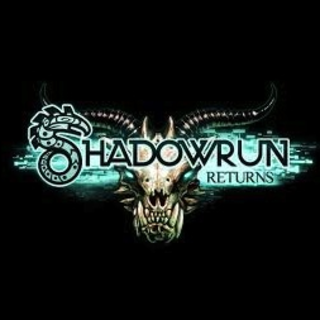A promising engine, and a good campaign that doesn't quite stick the landing.
Shadowrun Returns is defiantly old-school, in terms of everything from the core design to the budget. If that's a problem for you, you should probably be looking elsewhere.
The provided campaign is fairly linear, with only a few real player decisions to make, and the graphical presentation is functional rather than flashy, with highly detailed hand-drawn environments offset by smaller character models than we might like and a fairly limited range of animations. There's also no voice acting beyond the occasional 'argh'.
Now that linearity- is it a problem? Not so much. If you've ever played a pnp RPG, you'll have probably guessed that most of the time the GM knows the story he wants to tell, and just fits it around the antics of the players. (See also: practically any 'boxed' rpg adventure ever) If you come to Shadowrun Returns expecting to get the run of Seattle to do as you please, you won't be happy. If you expect a story set in the rich Shadowrun world, you just might be.
Another very old-school feature is the save system, which is important to understand. SR only saves by 'checkpoints' as opposed to allowing saves at any time. These points are, however, usually pretty close together- going through any area transition will trigger one. (The game also allows you to 'rewind' to a previous check-point and make back-up copies)
This is, of course, a big problem if you have to stop playing immediately, since you're going to lose progress, but it's rare for it to cause any worse issues. It also imbues SR's turn-based combat with a little more gravity than in some similar games. In the standard difficulty, that combat is not too hard and the enemies aren't generally all that smart, but every decision you make will have consequences and there's no quick-loading to get around them.
That turn-based combat is generally enjoyable and offers a lot of options. Usually, you'll control your character and three hired hands, chosen from a wide pool of characters ranging from gunslinging Street Samurai to classic Mages, to more unusual choices like Shamans who can summon spirits from the environment and drone-controlling Riggers. You can also enter the Matrix on certain missions, allowing your Decker to hack doors and turrets whilst the rest of your team holds off the guards, with turns alternating between meatspace and the Matrix.
Deckers do, however, expose one of the nastier flaws in SR's UI. Hiring a Decker doesn't allow you to see what programs he's bringing with him until the first time he jacks in, discouraging experimentation. Some missions will suggest a particular Decker, and this lack of info makes taking any other one feel like a crapshoot, hurting replayability. This lack of information is a recurring problem- you might be offered two weapons for sale with seemingly identical stats, one for a lower price, and it's only when you take it on a run that you'll find that cheaper weapon can't use certain special abilities.
Let's finish by going back to the campaign. The story is interesting, with some solid writing and plenty of little twists and turns, but like more than one RPG campaign falls down a little at the end by restricting choices and having a final level that's maybe a little overlong. Fortunately a powerful adventure creator is included and the game's community is already beavering away on new adventures. Shadowrun is most certainly back, but how long it sticks around is very much in the hands of the players.

